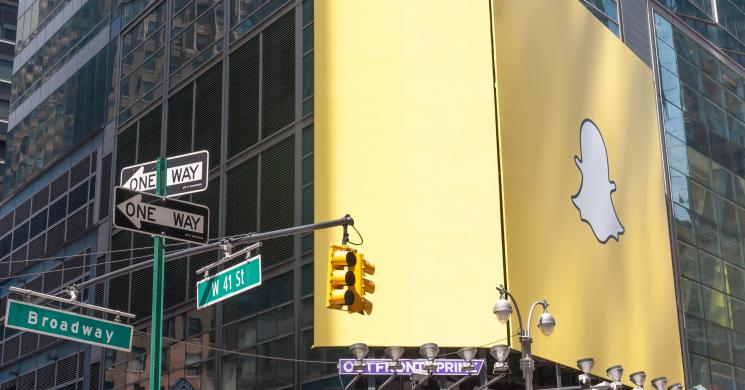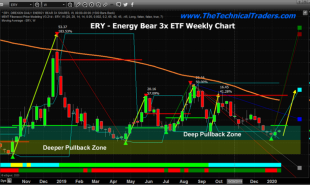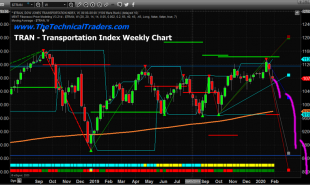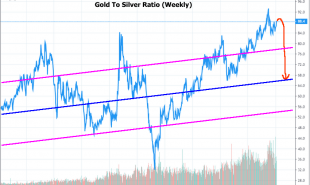
Snap.
Why would a company do an initial public offering? There is a traditional, boring, correct answer, which is to establish or deepen a relationship with the capital markets so that it can grow and strengthen its business. An IPO is not an endpoint; you don't take your company public and then jet off to your private island with a bag of money. Generally speaking, the chief executive officer is still the CEO, and still owns lots of stock. The venture-capital investors still own a lot of stock in the company, and in all the other companies they haven't taken public yet. The company still has a business that might require access to the capital markets. Everyone involved is a repeat player in a continuing game, so there's a shared desire to make everyone happy, to balance the desires of the sellers (get lots of money, don't give up much control) with those of the buyers (not overpay, get some shareholder rights).
But the basic business of finance is buying low and selling high, and it is sometimes hard to resist the secondary cynical explanation for going public, which is that you do an IPO to top-tick the market for your stock and sell at the very high point of hype. If for instance you are a social media startup, and Facebook Inc. is angling to kill you, and you are in that sweet spot after "so important that Facebook is obsessed with you" and before "Facebook has killed you," then that is maybe a good time to go public. And if you miss Wall Street expectations by a mile, in your very first quarterly earnings announcement after going public, then in a cynical sense you have done things exactly right: It's better to disappoint investors after you've taken their money than before.
So:
Snap Inc. added fewer users than projected in the first quarter, a sign that Facebook Inc.’s strategy of copycatting virtually every feature of its Snapchat app is taking a toll on the newly public company. The stock tumbled 26 percent.
In its debut earnings report after a March initial public offering, Snap, whose mobile app lets users send disappearing video and photo messages, said it added 8 million daily active users in the period, for a total of 166 million, with growth from a year earlier slowing to 36 percent. Revenue also fell short of analysts’ estimates.
The shares hit a low of $17.12 in after-hours trading -- still a bit above the IPO price -- costing each of Snap's two co-founders about $1 billion, so their top-ticking wasn't perfect. (They each sold about $272 million worth of stock in the IPO, though, so it was fine.) Co-founder and CEO Evan Spiegel was also awarded about $750 million worth of stock for getting the IPO done, which helped cause Snap's incredible negative 1479 percent operating margin last quarter:
![]()
Conventional business strategists would tell you that it's probably not a great idea to spend almost $2.4 billion to make just $150 million in revenue. But Snap didn't actually do that, not exactly. Of that $2.4 billion, almost $2 billion was attributable to stock-based compensation expense, "primarily due to the recognition of expense related to RSUs with a performance condition satisfied on the effectiveness of the registration statement for our initial public offering." A ton of employee stock vested on the IPO, and Snap's massive loss was due mainly to accounting for that stock.
We talk sometimes around here about how people are worried about non-GAAP accounting: There is a widespread view that executives like to report "fantasy" numbers, like "Adjusted EBITDA," in order to bamboozle shareholders and make themselves look good. There is particular scorn for companies whose non-GAAP numbers exclude stock-based compensation (because paying people with stock is a real cost) and extraordinary one-time expenses (because those expenses have a tendency to recur). And: sure. But U.S. generally accepted accounting principles are just a set of conventions that some accounting experts have decided strike the best balance between conservatism and accuracy most of the time, for most companies. It is not a perfect reflection of reality; the rules of GAAP are not rules of nature, and sometimes companies provide non-GAAP disclosure because it is more helpful in understanding their business than the GAAP numbers are. That seems to be the case here: If you evaluate Snap's business last quarter based on its massive GAAP net loss, you will be very confused about where the money went, and will have a hard time understanding what will happen next quarter.
I mean, don't get me wrong, the "real" numbers are still terrible: Snap had a loss of $188 million on its preferred metric, "Adjusted EBITDA," and cash flow from operations -- a GAAP number -- was negative $155 million. But those numbers seem closer to reflecting what actually happened in Snap's business last quarter -- roughly, it spent a bit over $2 for every $1 of revenue -- than does its GAAP net loss.
One other thing about top-ticking. Snap sold stock for a lot of money at what may or may not turn out to be a high point for its business and valuation. But it also sold stock with no voting rights at what may turn out to be a high point for investor enthusiasm for big tech IPOs with shareholder-unfriendly governance provisions. If you are a shareholder who is unhappy with Snap's direction, guess what: There is not a lot you can do about it! Also: Snap's executives don't care! "At this point we're kind of famous for not giving guidance on the product pipeline," said Spiegel. "It should be a fun rest of the year," he added, which is probably not a sentiment shared by a lot of public-company CEOs who miss earnings expectations. But it will be, for him, in part because he doesn't have to answer to shareholders. Perhaps if the shareholders find it less fun, they will be more resistant to buying no-vote shares in the next hot unicorn to come along.
Read more by Wall St. Whisperer







